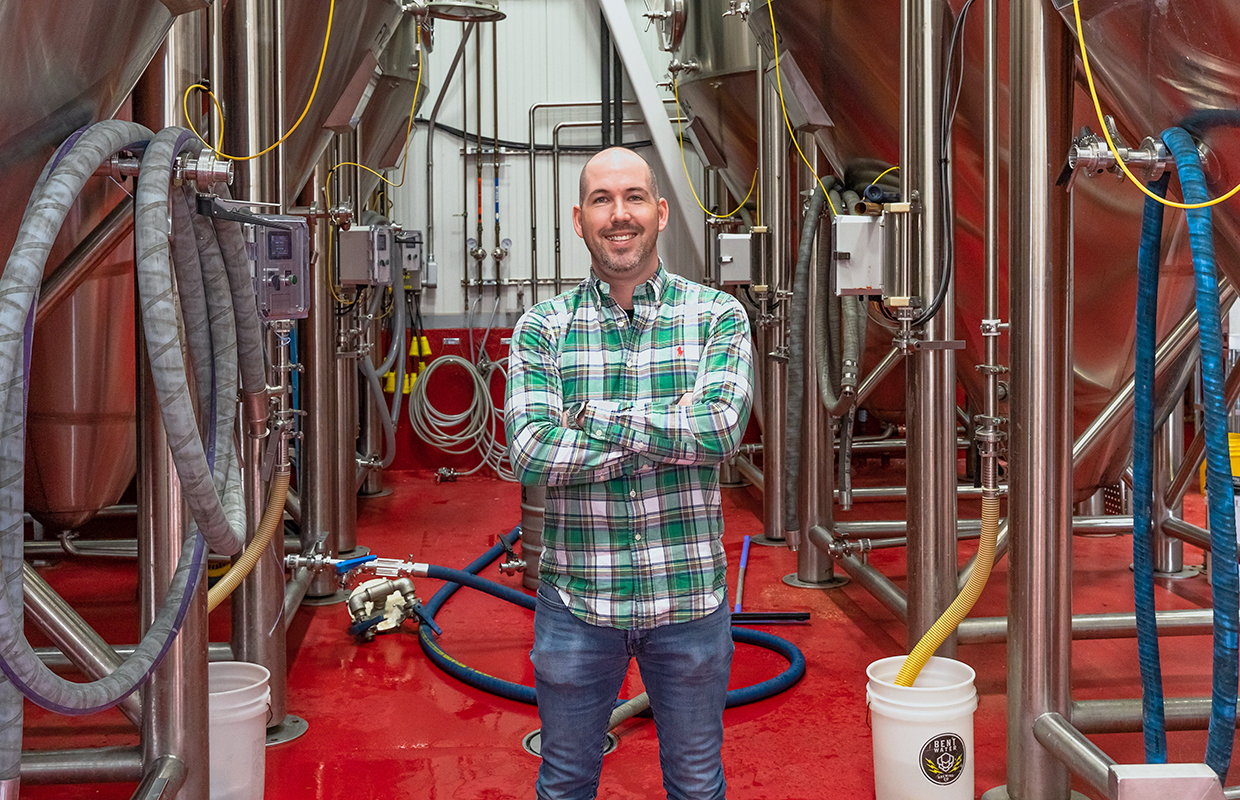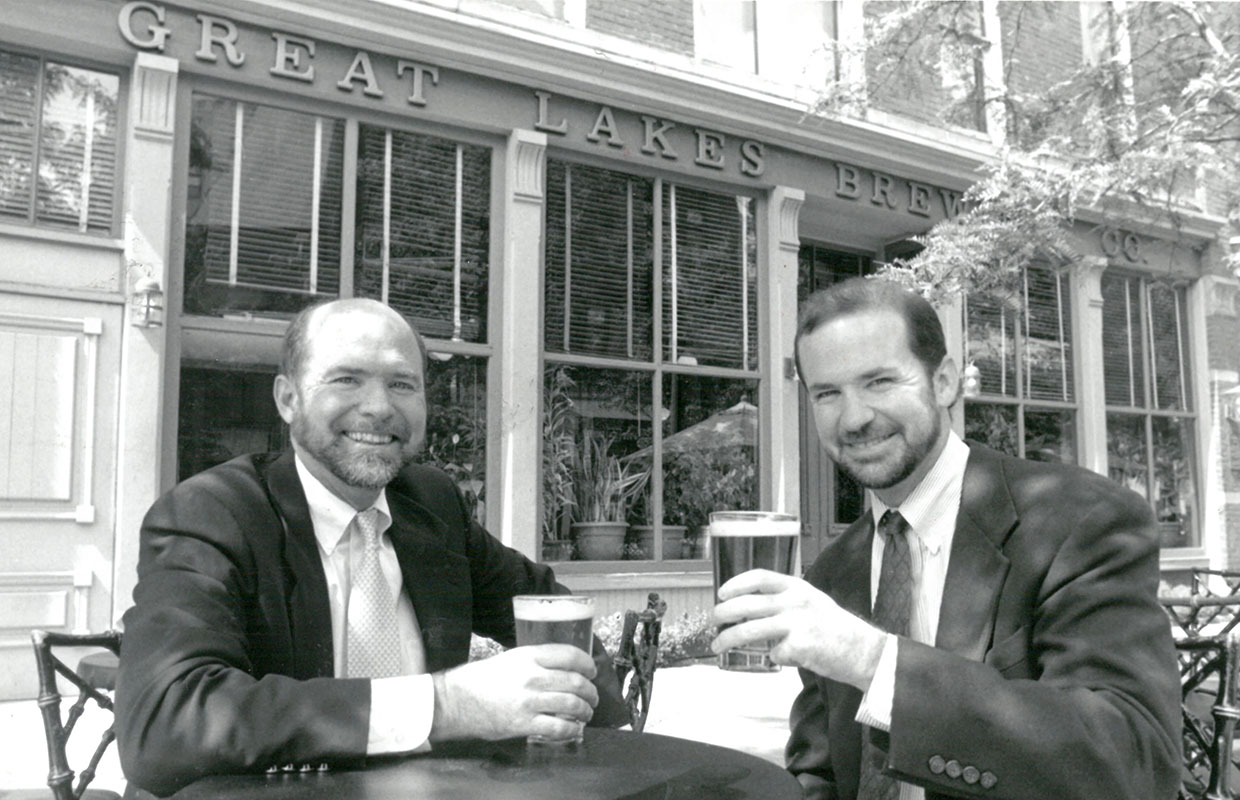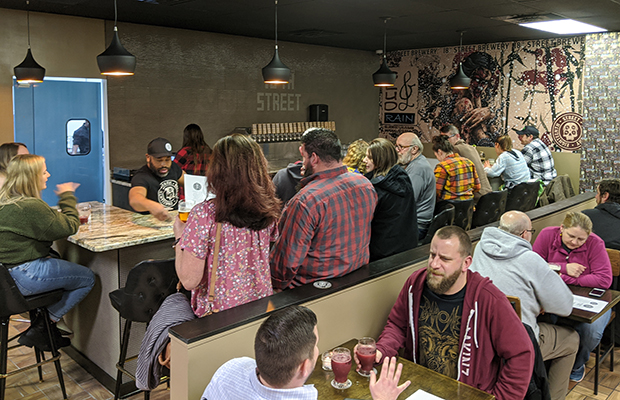
This is a part of a continuing series of Q&As with members of the brewing community from across the U.S.
Brewer Magazine will share business and personal insights from Brewmasters, Head Brewers, Brewing Managers, Sales Directors, QCQA Managers and others each weekend to help you get to know each other better in the industry and learn more to better develop your own brand.
Drew Yeager had spent a majority of his professional career with Nashville’s Fat Bottom Brewing as the Director of Brewery Operations, but recently made the switch to join the team at Bent Water Brewing in Lynn, Massachusetts to take the role of Chief Operating Officer and Head Brewer. He has shared insights on grain storage, brewery safety and more with Brewer in the past and we wanted to give him a chance to share his thoughts on his new role for the growing brand.
Drew Yeager, Chief Operating Officer & Head Brewer — Bent Water Brewing, Lynn, Massachusetts
BREWER: Why did you enter the craft beer industry and what makes you love being a part of it and staying in it?
YEAGER: I entered the craft beer industry after falling in love with the laid-back culture, the collaborative nature, the passion the leaders of the industry carry with them and the diversity of backgrounds this industry brings together. While attending UC Davis Master Brewers Program, I was driven by being a continual student of the craft. I truly feel even after 10+ years in the industry, I still learn something new almost every day.
BREWER: What do you feel have been new challenges in your position that have helped push you and make you better at your job?
YEAGER: In my current position as COO, I am having to transition from a player on the field to more of a player/coach role. It has been different from my previous roles of figuring out how to achieve results by myself, I now need to provide the leadership to help others achieve those results. In order to be an effective leader, I’m learning that lessons gained from every aspect of your life are pulled together. For example, in my job I use attributes I gained from fatherhood such as patience, humility, clear & concise direction, and empathy.
BREWER: How has the definition of growth for your company evolved and how have you adjusted to be successful in that new definition?
YEAGER: With only being at Bent Water for a little over a month, I don’t think I can speak accurately to how the company’s definition of growth has changed over the years. My personal definition of growth is simple, continual improvement. It is important to have a culture of transparency, self accountability, and honest evaluation. If you can achieve that, you can continually improve in any/all deficient areas, which will translate to growth of your company’s employees, culture and ultimately your brands.
BREWER: What strategic growth opportunity do you feel is still “out there” for your brand and how are you working on capitalizing on it this year?
YEAGER: I think there are a lot of growth strategies still available to employ for Bent Water and other breweries in the 5-10,000-barrels per year size. For my own role, I am focused on internal planning and execution. I feel if we can operate like a well-planned larger brewery, that will set us apart from other breweries our size. I am helping the awkward transition of going from being reactive to proactive in our approach. This typically takes an unfamiliar level of cross-department coordination and cooperation. We have a very strong team here at Bent Water, in fact, the strongest team across the board that I have been exposed to during my time in the industry. That is a huge asset and helps with the trust needed to work in unison across all a company’s departments.
BREWER: If you had one business strategy that you could implement to better the brewing industry, what would it be?
YEAGER: Building a culture of employee well-being, involving staff in decisions that affect them, coaching employees for resiliency, and consistently measuring what matters. I was struck by the impact that poor mental health is having in workplaces. The answer is simple, care about and support every employee in your company. Get to know them, their families, and what struggles outside of work they are going through. What motivates that specific employee? What do they want to achieve in their careers? How can you help align those goals with the goals of the company? Sustained employee engagement is not possible without a focus on employee well-being and organizational change benefits from a positive framework that supports and cares for people.




Be the first to comment